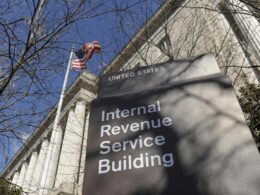In a big setback for free speech rights in America, Louisiana Immigration Judge Jamee Comans delivered a shameful verdict Friday: recent Columbia grad student and legal permanent resident Mahmoud Khalil, detained by ICE for weeks, could be deported under an obscure section of law that allows the secretary of state to remove noncitizens who can adversely affect U.S. foreign policy.
Comans’ decision must be put in context. Despite being often described as a federal judge, Comans is not actually part of the federal judiciary but an administrative officer of the Department of Justice, and has no power to consider the constitutional questions that Khalil is separately raising with New Jersey Federal Judge Michael Farbiarz. Farbiarz has already ordered that Khalil cannot be deported while these constitutional questions are hashed out, and any competent judge will find that the government is attempting to violate the First Amendment.
The Louisiana ruling is a disappointment but not necessarily unexpected; the matter will likely go before the Board of Immigration Appeals, which Attorney General Pam Bondi recently reduced from 28 to 15 members with a view towards making the board more hardline. Only after that can a case be brought to an independent federal appeals court, which might finally have more latitude to point out that even under the executive’s expansive powers on immigration, Secretary of State Marco Rubio’s letter justifying this action is a joke.
Rubio doesn’t come close to establishing that Khalil poses any legitimate threat to foreign policy, and a panel of federal appeals judges should have no trouble discerning that if Rubio can make this claim about Khalil, he can grab and deport any noncitizen anywhere in the country for engaging in disfavored speech.
If a longtime permanent resident complains that tariffs are bad economic policy and hurting her 401(k), can the secretary of state have her detained and stripped of status for agitating against the president’s signature foreign policy plank? What if someone criticizes the end of USAID programs? What if he criticizes the targeting of speech itself, does that damage U.S. standing in the world and require them to be detained for speaking?
Once this train is loose it’ll just keep rolling on, which means judges will have to get comfortable with pushing back on the discretion they have traditionally given the president on immigration, among other things.
Maryland Federal Judge Paula Xinis, who is hearing the case of Kilmar Abrego García — a Maryland man with legal protections who was unlawfully sent to the Salvadoran CECOT prison — is demonstrating how after the Supreme Court gave her the green light to direct the government to effectuate his return to the United States.
After Xinis ordered the feds to provide basic information about Abrego’s whereabouts and what steps they was taking to return him, they blew her off, with DOJ lawyers filing a response including the bewildering line that “Defendants are not in a position where they ‘can’ share any information requested by the Court.”
Xinis did not take kindly to that, found that the government was in noncompliance, and ordered it to provide her daily updates. More of that; unfortunately, the presumption that the government is acting in good faith vis-a-vis the courts is a thing of the past.








